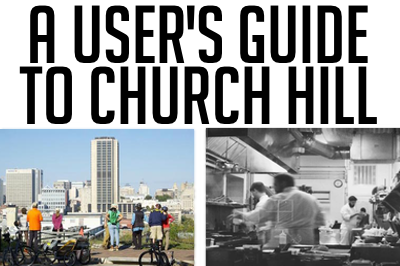RECENT COMMENTS

A description of the process for electing a mayor
With a small handful of announced candidates already in the contest to be Richmond’s next mayor, and an unknown number yet to throw their hats in the ring, this is likely to be an epic local election season. Might be so epic that we get to vote twice, even…
As of today, City Council President Michelle Mosby, Lillie A. Estes, and Chad Ingold have all declared their intent to run. VPAP also lists Kim Franklin as a candidate, but I can’t find any other mention of the candidate. Anybody want to posit an over/under on how many names will be on the actual ballot?
The official description of the process for electing a mayor in Richmond:
On the first Tuesday after the first Monday in November 2004, and every four years thereafter, a general election shall be held to elect the mayor.
All persons seeking to have their names appear on the ballot as candidates for mayor must comply with the provisions of Chapter 5 (§ 24.2-500 et seq.) of Title 24.2 of the Code of Virginia and must file with their declaration of candidacy a petition containing a minimum of 500 signatures of qualified voters of the city, to include at least 50 qualified voters from each of the nine election districts. However, these filing requirements shall only apply to the initial, general election and not to any runoff election that may subsequently become necessary.
In the general election, the person receiving the most votes in each of at least five of the nine city council districts shall be elected mayor.
Should no one be elected, then the two persons receiving the highest total of votes city wide shall be considered nominated for a runoff election. The runoff election shall be held on the sixth Tuesday after the November general election between the two nominees. The date of any such runoff election shall, as soon as possible, be posted at the courthouse and published at least once in a newspaper of general circulation in the city.
In any such runoff election, write-in votes shall not be counted, and the person receiving the most votes in each of at least five of the nine city council districts shall be elected mayor. In the event the two candidates in a runoff election shall each win an equal number of council districts, the candidate receiving the most votes city wide shall be elected mayor.
An elected term shall run four years. Anyone eligible to serve on city council may serve as mayor, except no one may be elected mayor for three consecutive full terms, and no one may simultaneously hold the office of mayor and any other elected position.
Key takeaway – if no candidate wins a majority in 5 of the 9 districts, we get a runoff election between the top 2 candidatees.
In 2008, 87,767 votes were split between 5 candidates. Dwight Jones garnered 34,554 votes and won the 3rd, 6th, 7th (results), 8th, and 9th Districts – though he only took the 3rd District by fewer than 160 votes. William J. “Bill” Pantele picked up 29,215 votes and won the 1st, 2nd, and 4th Districts handily. Robert Grey pulled 18,610 votes, but won no precincts.
TAGGED: election






The winning candidate will spend $600,000+. $150,000 won’t buy you a ticket to this ball.
Levar Stoney almost certainly jumps in. Joe Morrissey is very likely to run. Still a good chance Jon Baliles runs. And Doug Wilder is upping his visibility to either try and come back or pave the way for a protege.
I’m wondering about the statement that the winner has to win “a majority” in 5 of the 9 districts. Is this true? Can’t someone win a district with a plurality of votes, i.e. “the most votes”?
@Alexander – nope, not for the 1st round. If no one takes 5 of 9, then the top 2 vote getters move on to a run-off.
I’m not asking about a plurality of the nine districts. I’m asking about the vote in each district. In other words, can’t you “take” a specific district with less than 51% of the vote in that district?
oh right, got you. It certainly reads that way, right?
Bookmark this page, we’re up to at least 8 candidates for mayor:
http://www.styleweekly.com/ScrumBlog/archives/2016/03/29/former-occupy-richmond-activist-alan-schintzius-enters-mayoral-race